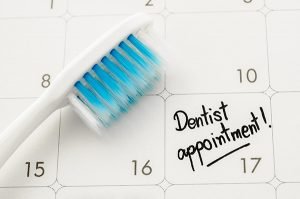Cold Sores and your Dental Appointment at Warner Lakes Dental

In fact, 25 per cent of us suffer from recurring cold sores.
Cold sores are characterised by small blisters on your lips and are often confused with canker sores, which present similar symptoms.
If you suffer from cold sores and you’re wondering if they will impact a scheduled dental appointment, we recommend you give us a call.
Generally, our recommendation is to let your cold sore heal before an appointment, to decrease the chance it will spread on you or to others.
Don’t worry most cold sores take less than ten days to go away! We’re happy to reschedule your appointment!
What are cold sores?
Cold sores, also called fever blisters, are caused by a form of the herpes simplex virus. This virus creates a lifelong infection that can lay hidden in your body (sometimes for years) before breaking out into a cold sore.
Because the virus that causes cold sores goes dormant but never goes away, it is important to battle cold-sores by heading them off before they erupt, or treating them as soon as there is evidence they are on the way. It is also vital to ensure the virus itself is not passed along to others or back to yourself.
To help cold sore suffers battle their affliction, Warner Lakes Dental Brisbane has collected information on how to forestall, treat, and avoid transmission of cold sores. And if you suffer from a painful or persistent canker sore, give us a call, we’ll be happy to take a look!
Avoid cold sore triggers
Preventing a cold sore is quicker and safer approach than treating an outbreak. While not all cold sores can be prevented, knowing their triggers is a first step in managing them.
Common cold sore triggers include:
- Foods with a low lysine to arginine ratio. Lysine reduces cold sores while arginine triggers them.
- Stress
- Illness or surgery
- Sleep deprivation
- Exposure to sun or wind
- Skin trauma
- Hormonal fluctuation, mainly resulting from menstruation or birth control pills
- Compromised immune system
Keeping a diary or log may help you determine your particular triggers for cold sores. Track activities, diet, disorders, and life events to narrow down what may trigger outbreaks for you.
Fight back, quickly!
If you suffer from cold sores, you know the symptoms. It begins with a slight tingling around your mouth, and later a cold sore breaks through. This is why tingling is one of the first signs to look for in your fight against cold sores.
Catching and treating cold sores at the beginning of an outbreak won’t prevent sores from forming, but it may reduce the severity and duration of the outbreak. Oral medication is defence #1 during this phase.
For occasional cold sores, topical treatments can be useful. Some of these surface treatments include:
- Docosanol which is available over the counter (OTC)
- Acyclovir by prescription only
- Penciclovir by prescription only
For frequent cold sores or if you would rather take medication orally, your doctor may prescribe one of the following:
- Acyclovir
- Valacyclovir
- Famciclovir
If you are a regular sufferer, talk to your doctor about having a prescription ready, so all you need is a trip to the pharmacy to begin battling your cold sores.
Dealing with symptoms
Here are a few tested approaches:
Cold compresses. Reduce swelling and irritation with an insulated ice pack or cool, wet cloth. Apply compresses for five to ten minutes multiple times a day and never apply ice directly to the skin.
Creams with lidocaine or benzocaine may provide relief.
OTC pain relievers like ibuprofen (Advil) or acetaminophen (Tylenol) can give relief.
Avoid acid. Avoid sharp, acidic foods like tomatoes and oranges.
Keep fingers away from sores. They may beg for scratching, but poking them can lead to infection, which can make the sores stay longer and can cause scarring.
Be sure the virus does not spread
If you have a cold sore, it is up to you to avoid passing it on. Here are some precautions:
- Wash your hands if you touch a cold sore and don’t touch anywhere else on the body.
- Replace your toothbrush or any other personal hygiene items that might harbour the virus.
- Don’t kiss anyone until your sores are gone.
- Don’t share utensils, glasses, towels, pillowcases, or razors.
Call your Warner dentist on (07) 3448 0162 or visit us at Warner Lakes Medical Precinct, 1185B Old North Road in Warner.
